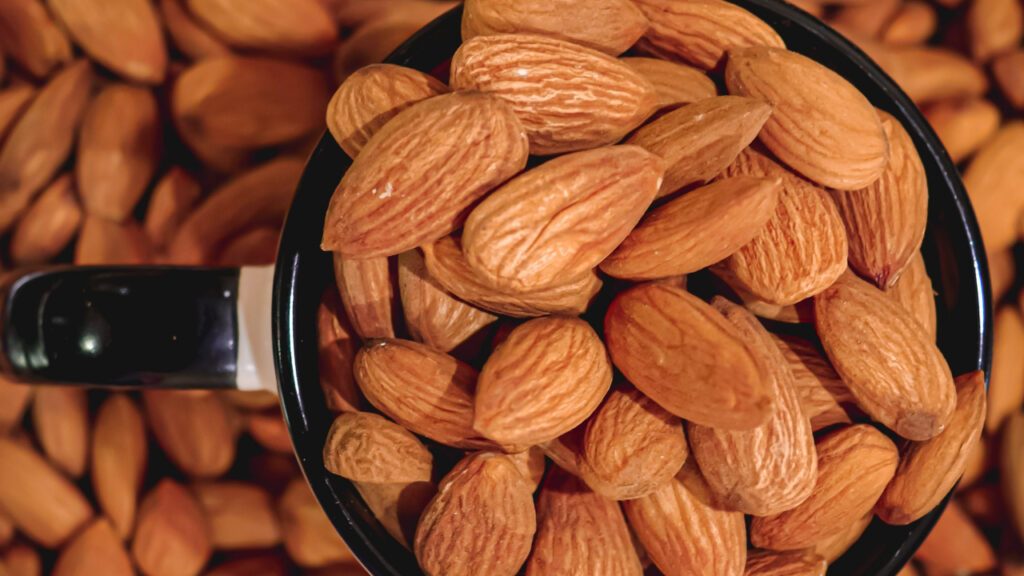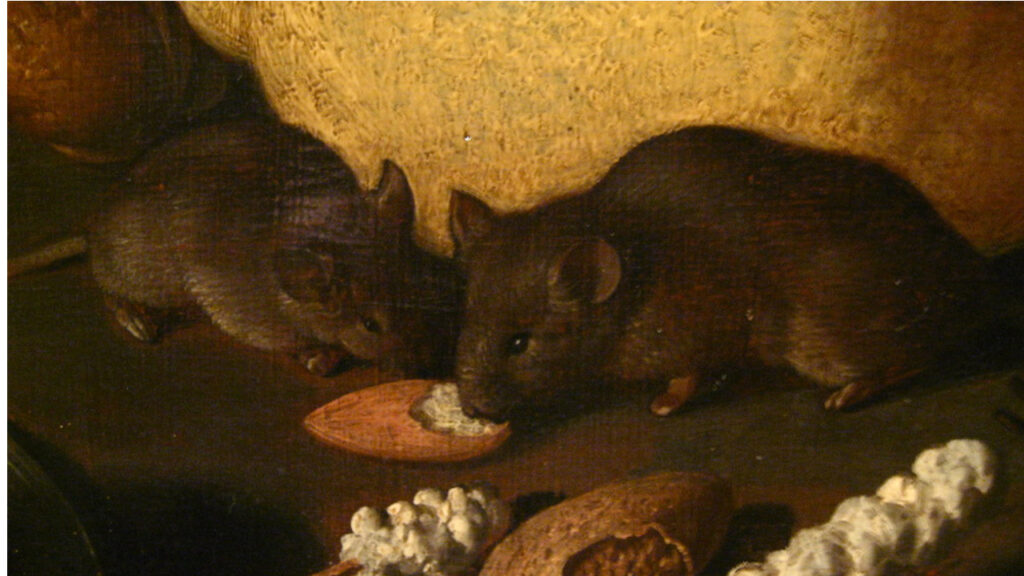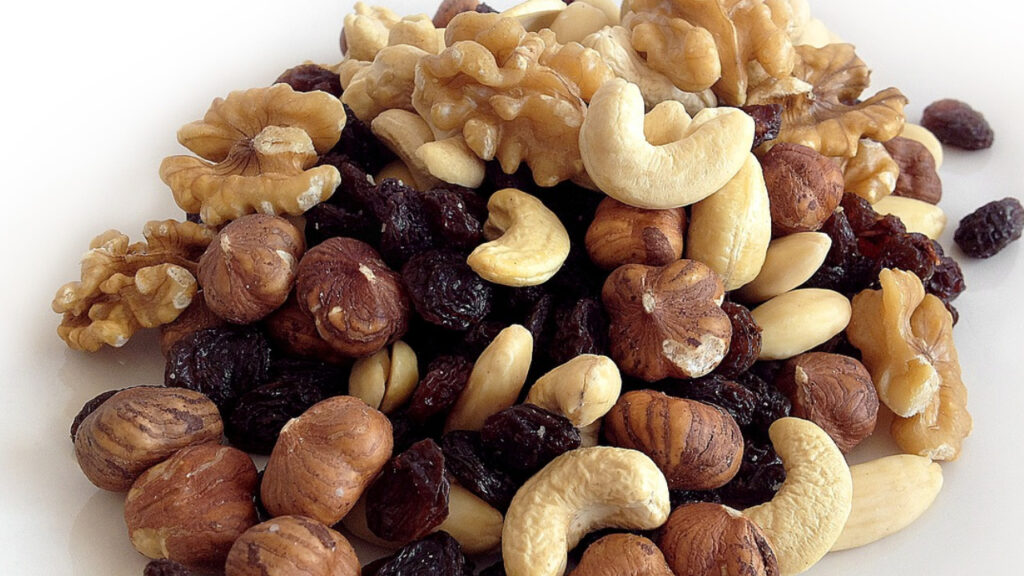
Almonds are commonly consumed by humans and are known for their mild, nutty flavor and crunchy texture. Almonds are used in various culinary dishes, snacks, and desserts and are also a source of various nutrients, including healthy fats, protein, fiber, vitamins, and minerals.
But can rats eat them too?
Yes, rats can eat almonds, but it’s important to offer them in moderation. Keep the pieces in small size to avoid choking hazard and it essential to ensure they are plain, unsalted, and without any added flavors or coatings. Treats like almonds should be provided sparingly to keep your pet rat healthy and happy.
So should you feed almonds to your rats?
Let’s find out!
Table of Contents
Can Rats Eat Almonds?
Rats can eat almonds, but it’s important to do so in moderation.
Almonds are a good source of healthy fats, protein, and fiber, which can provide some nutritional benefits for rats.
However, there are a few important considerations to keep in mind:
- Almonds should only be offered as an occasional treat
- Almonds are relatively large compared to a rat’s small size, so it’s best to offer them in small, manageable pieces. Whole almonds could pose a choking hazard.
- Plain, unsalted almonds are the safest option for rats. Avoid offering flavored almonds or almonds with added seasonings.
- Just like humans, some rats may have allergies or sensitivities to certain foods, including almonds. It’s a good idea to introduce almonds slowly and observe how your rat reacts.
So, have some almonds? Feel free to share it with your rats, but make sure you soak or ground them to avoid choking up your little friend.
You may also like: Can Rabbits Eat Pecans?
How Many Almonds Can Rats Eat?

Imagine you have a pet rat named Whiskers, and you want to give Whiskers some yummy almonds as a treat. You should only give Whiskers a very small amount of almonds, like just one tiny piece. Rats are really small, and almonds are kind of big for them.
It’s like if you were eating a big pizza, you might just have one small slice as a treat, not the whole pizza, right?
Rats are the same way with almonds.
They can have a little bit once in a while, but it shouldn’t be their main food. Their regular food, like rat pellets, is what keeps them healthy.
So, to keep Whiskers safe and happy, give them a small piece of almond now and then, but remember, just a little bit is enough!
And always make sure the almonds are plain and not flavored or salted because that’s better for Whiskers’ tummy.
Is Almond a Healthy Choice for Rats?
While almonds are high in fat content, they can offer some potential health benefits when provided as an occasional treat.
A typical serving of almonds (1-ounce) contain:
- Calories: Approximately 160 calories
- Fat: Approximately 14 grams
- Protein: Approximately 6 grams
- Carbohydrates: Approximately 6 grams
- Dietary Fiber: Approximately 3.5 grams
Other health benefits of almonds for rats may include:
Healthy Fats: Almonds contain healthy fats, including monounsaturated and polyunsaturated fats, which can provide a source of energy for rats.
Protein: Almonds are a source of protein, which is essential for maintaining muscle and tissue health in rats.
Fiber: Almonds contain dietary fiber, which can support digestive health in rats by promoting regular bowel movements.
Vitamins and Minerals: Almonds provide essential nutrients like vitamin E, magnesium, and phosphorus, which can contribute to overall health and well-being.
Chewing Exercise: Gnawing on almonds can help wear down a rat’s teeth, preventing dental issues. Rats’ teeth continuously grow, and they need to chew on appropriate items to keep them at a healthy length.
It’s important to emphasize that while almonds can offer some nutritional benefits, they should be given sparingly as a treat and not as a primary food source for rats.
Can Rats Eat Roasted Almonds?
Roasted almonds are not the best choice for your rat.
Imagine if you tried to eat a really hard and crunchy cookie. It might hurt your teeth, right? Well, roasted almonds can be kind of hard and crunchy, and that might not be great for your rat’s little teeth.
Rats have teeth that keep growing, and they need to chew on things to keep them healthy. But if the almonds are too hard, they might not be good for their teeth.
So, it’s better to stick with plain, unsalted almonds for your rat.
These are softer and safer for their teeth.
Remember, rats should only have a tiny bit of almond as a treat once in a while. Their main food should be their special rat pellets to keep them strong and healthy!
Can Rats Eat Almond with the Shell?

No, it’s not a good idea to give your pet rat almonds with the shell.
For example, if you wanted to eat a peanut with the shell still on it. It would be really hard to chew, right? Well, almond shells are tough and can be difficult for rats to eat.
Rats have small teeth, and they might have a hard time breaking open the shell. Plus, the shell can be sharp and might hurt their little mouths.
We want to keep our pet rats safe and happy, so it’s best to give them just the soft inside part of the almond without the shell.
Can Baby Rats Eat Almonds?
No way!
Have you seen baby rats?
They don’t even have teethes.
Baby rats, also known as rat pups, have more delicate digestive systems and nutritional needs compared to adult rats.
It’s essential to be especially cautious with their diet.
When it comes to almonds, it’s generally not recommended to give them to baby rats.
Baby rats have specific nutritional requirements for growth, and their primary food should be a specially formulated rat pup food or formula.
Almonds do not provide all the essential nutrients that baby rats need during this critical growth stage.
As they grow and transition to a more varied diet, you can introduce small, soft, and safe treats like small pieces of fresh fruits and vegetables in moderation.
Can Rats Eat Almond Butter?
Imagine if you had a jar of almond butter, and you were wondering if your rat could have some.
Well, it’s a bit tricky.
Almond butter is made from almonds, and it’s pretty soft and gooey. While a tiny taste might be okay as an occasional treat, you need to be super careful not to give them too much.
Too much almond butter can be too fatty for him, and it might upset his tummy.
So, if you want to share a little bit of almond butter with your rats, make sure it’s just a small, tiny dab on your fingertip.
And always watch to see how he reacts to new foods. If he doesn’t seem to like it or if it upsets his tummy, it’s best to skip the almond butter.
Foods to Avoid Feeding Your Rats
If you have pet rats, it’s essential to know which foods to avoid giving them to keep them safe and healthy.
Here are some foods to steer clear of:
- Citrus Fruits: Rats should not eat citrus fruits like oranges, lemons, and grapefruits. The acidity in these fruits can upset their sensitive digestive systems.
- Raw Beans: Raw beans, such as kidney beans or fava beans, contain toxins that can be harmful to rats if not properly cooked. Always cook beans before feeding them to your rats.
- Raw Sweet Potatoes: Raw sweet potatoes can be hard for rats to digest. It’s best to cook them thoroughly before offering them as a treat.
- Raw Onions and Garlic: Onions and garlic, whether raw or cooked, can be toxic to rats and should be avoided.
- Sugary or Salty Snacks: Avoid giving your rats sugary or salty snacks like chips, candy, and soda. Rats have different dietary needs than humans and should not consume high amounts of sugar or salt.
- Processed Foods: Foods high in preservatives, additives, and artificial flavors are not suitable for rats. Stick to natural, whole foods as treats.
- Human Junk Food: Avoid sharing your human junk food, like pizza, burgers, and fried foods, with your rats. These items are not nutritionally appropriate for them.
- Carbonated Beverages: Carbonated drinks like soda are not safe for rats to consume. Stick to fresh water for their hydration.
- Chocolate and Caffeine: Chocolate and caffeine are toxic to rats and should never be given to them.
Remember that rats have specific dietary requirements, and their main food should be a high-quality rat pellet or block designed to meet their nutritional needs. Treats should be offered in moderation and consist of safe, rat-friendly foods like small pieces of fresh fruits and vegetables, plain cooked pasta, or the occasional nut, like almonds, as discussed earlier.
What Other Nuts Can Rats Eat Besides Almonds?

Rats can enjoy a variety of nuts in moderation, but it’s important to keep in mind that nuts are high in fat, so they should be considered as occasional treats rather than a regular part of a rat’s diet.
Here are some other nuts that rats can eat:
- Peanuts: Rats can eat plain, unsalted peanuts. However, be cautious with peanut butter, as it can be sticky and may cause choking if not given in small amounts or spread thinly.
- Cashews: Rats can eat unsalted cashews. Cashews are lower in fat compared to some other nuts, but they should still be offered sparingly.
- Walnuts: Rats can have small amounts of unsalted walnuts. Walnuts are relatively high in fat, so offer them infrequently.
- Hazelnuts: Hazelnuts are safe for rats in small quantities, as long as they are unsalted and not covered in chocolate or other coatings.
- Pecans: Pecans are another option, but like other nuts, they should be unsalted and given in moderation.
When offering nuts to your pet rat, it’s crucial to provide them in small, manageable pieces. Nuts are often too large for rats to consume whole, which could pose a choking hazard.
Also, always make sure the nuts are fresh and not spoiled.
Final Thoughts
To wrap this up, while rats can nibble on almonds as an occasional treat, the keyword here is “occasional.”
Almonds should never replace their main diet, which should be comprised of specially formulated rat food. When offering almonds, ensure they are plain, unsalted, and provided in small, manageable pieces or grounded to prevent any choking hazards.
Always monitor your rat’s health and consult with a veterinarian experienced in small animal care if you have any concerns about their diet.
Keeping the almond treats rare and mindful will help keep your pet rat in good health.
Before you leave, here are more helpful articles:
